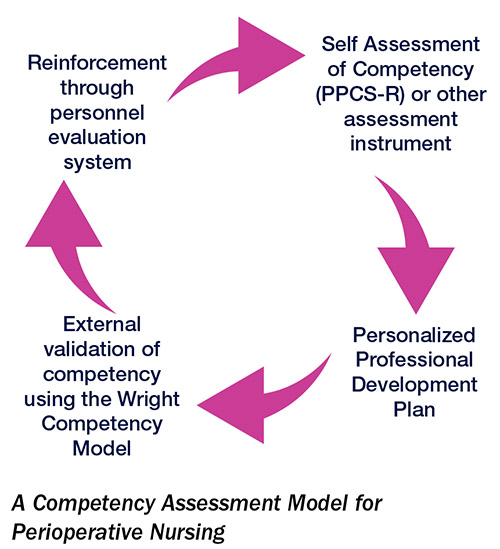
Editor's Note A June 24 advisory from the FBI and Department of Health and Human Services warns healthcare organizations about attempts to steal payments through phishing and social engineering tactics, according to a post from the American Hospital Association (AHA). The attackers target employee email accounts to access login information…

Editor's Note Nearly half of hospital executives report that their hospitals are not fully prepared to cope with patient volumes, Becker’s Hospital Review reported June 13. Citing the June 12 Hospital Operations Outlook Survey from FTI Consulting, Becker’s reports that nursing and mental and behavior health specialists represent the greatest…

Competency assessment in perioperative nursing—and American healthcare in general—is a story of unrealized potential. Particularly in the wake of the pandemic, staffing shortfalls and financial pressures have made focusing on staff development difficult for nurse leaders. Nonetheless, the argument for investing more in professional development and competency has never been…

For me, the answer is easy. For 25 years I have consistently said, “I’ve never nursed an OR a day in my life; it’s always been the patients.” As perioperative nurses, what we do is about more than where we work. Why is it that 25 years after the Association…

Editor's Note Substituting lower-wage staff for registered nurses leads to additional patient deaths, the Washington Post reported on June 15. The article focuses on a study published in the journal Medical Care, noting that the new research coincides with a nationwide shortage of RNs and “reports of widespread burnout.” Researchers…

Editor's Note Surgeons and surgical trainees who are female or from minority racial or ethnic backgrounds report higher levels of negative emotions and self-doubt after adverse events, according to a recent study in JAMA Network Open. According to a June 5 report in MedPage Today, the single-site, mixed-methods study found…

Editor's Note The state agency overseeing Oregon’s hospitals has received a “flood of complaints” due to a “first-of-its-kind” law mandating progressively stricter nurse and certified nursing assistant (CNA) staffing ratios, according to a June 7 report in KMTR. Passed after extensive negotiations among hospital executives, staff, and nurse unions…

Editor's Note AORN encourages perioperative leaders to speak up and reach out in honor of National Time Out Day, an annual recognition of the critical safety practice scheduled for June 12. The annual day of recognition draws attention to the need for everyone on the surgical team to pause before…

Editor's Note Recognizing that perioperative leaders are busy people, we’ve extended the deadline to participate in the annual OR Manager Career/Salary survey—and we’re sweetening the incentives to include a free Premium Subscription to OR Manager. Now open through June 7, this annual survey yields useful, actionable insights made possible…

Editor's Note Colorado is the first state in naton to pass legislation regulating the use of artificial intelligence (AI) in pivotal decision-making, including in healthcare, according to a May 22 report in Politico. The new law has sparked significant debate, according to the report, with some viewing it as a…